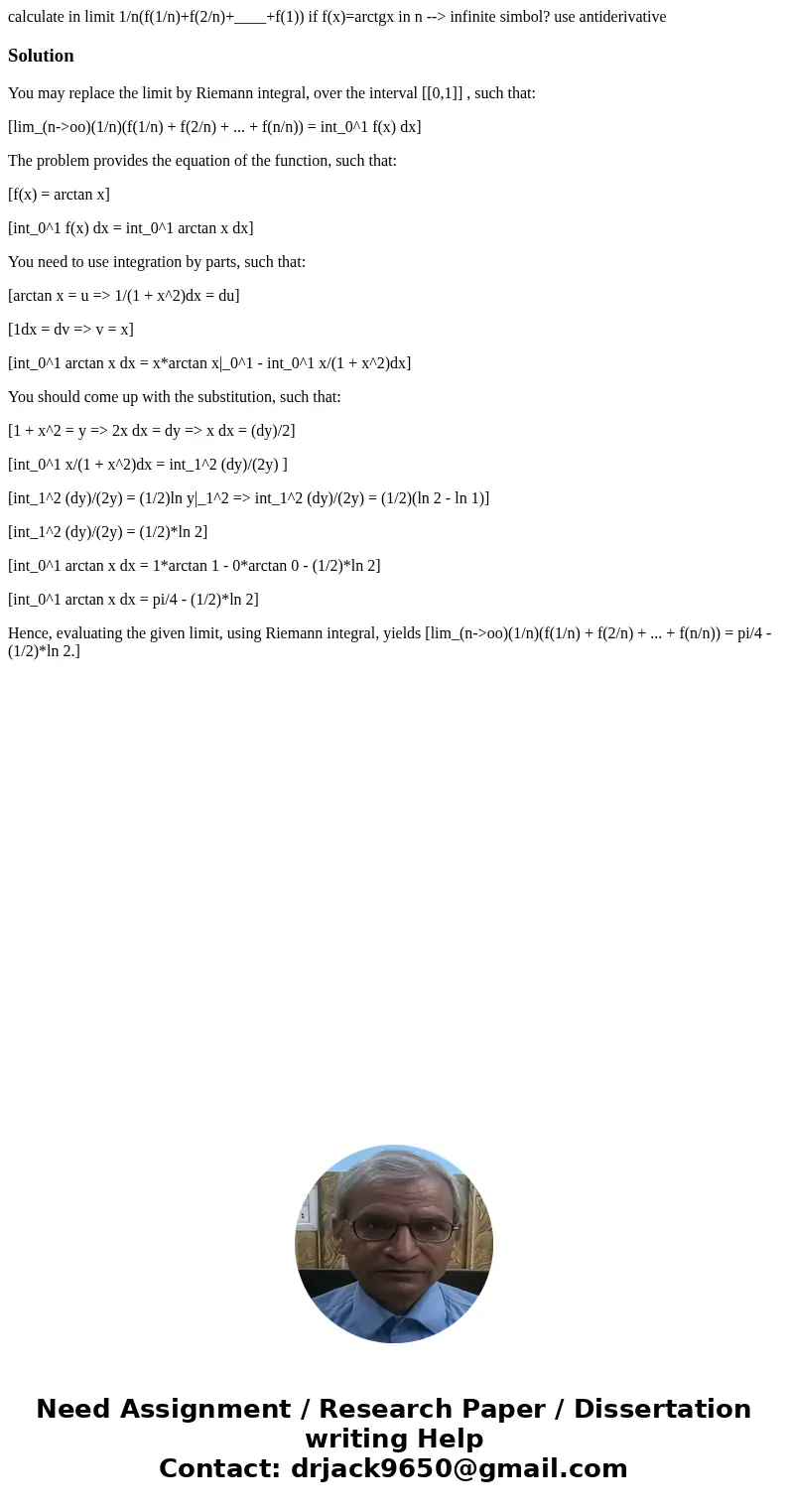calculate in limit 1nf1nf2nf1 if fxarctgx in n infinite sim
Solution
You may replace the limit by Riemann integral, over the interval [[0,1]] , such that:
[lim_(n->oo)(1/n)(f(1/n) + f(2/n) + ... + f(n/n)) = int_0^1 f(x) dx]
The problem provides the equation of the function, such that:
[f(x) = arctan x]
[int_0^1 f(x) dx = int_0^1 arctan x dx]
You need to use integration by parts, such that:
[arctan x = u => 1/(1 + x^2)dx = du]
[1dx = dv => v = x]
[int_0^1 arctan x dx = x*arctan x|_0^1 - int_0^1 x/(1 + x^2)dx]
You should come up with the substitution, such that:
[1 + x^2 = y => 2x dx = dy => x dx = (dy)/2]
[int_0^1 x/(1 + x^2)dx = int_1^2 (dy)/(2y) ]
[int_1^2 (dy)/(2y) = (1/2)ln y|_1^2 => int_1^2 (dy)/(2y) = (1/2)(ln 2 - ln 1)]
[int_1^2 (dy)/(2y) = (1/2)*ln 2]
[int_0^1 arctan x dx = 1*arctan 1 - 0*arctan 0 - (1/2)*ln 2]
[int_0^1 arctan x dx = pi/4 - (1/2)*ln 2]
Hence, evaluating the given limit, using Riemann integral, yields [lim_(n->oo)(1/n)(f(1/n) + f(2/n) + ... + f(n/n)) = pi/4 - (1/2)*ln 2.]

 Homework Sourse
Homework Sourse